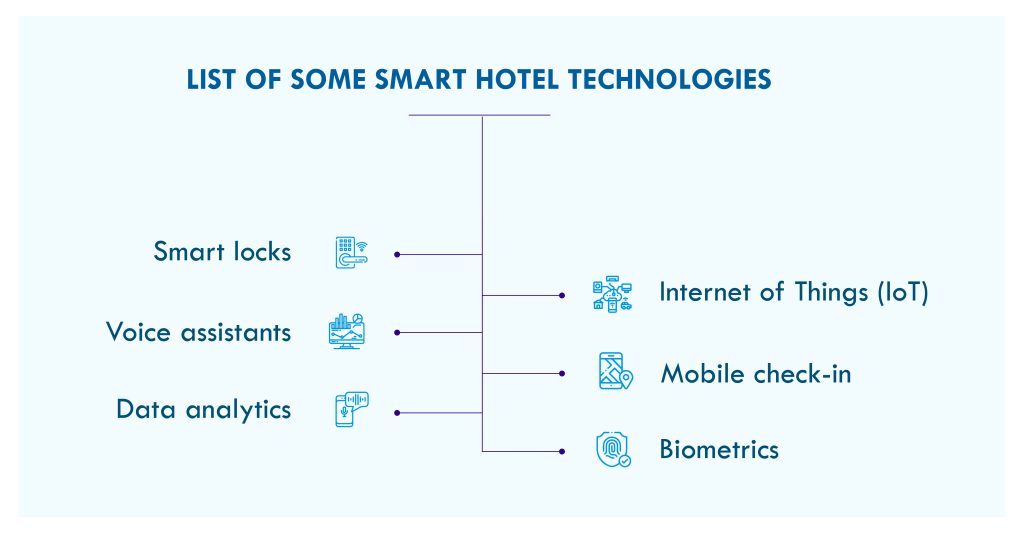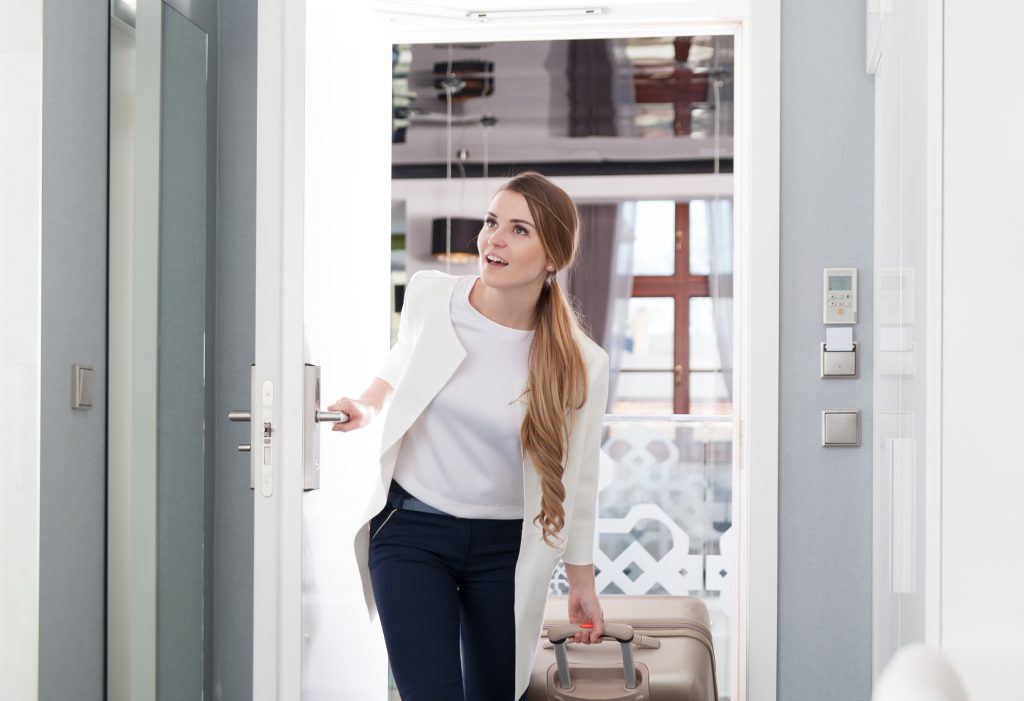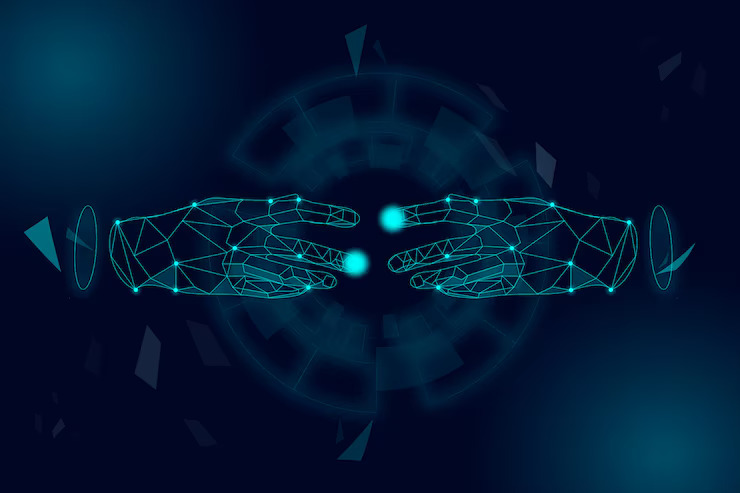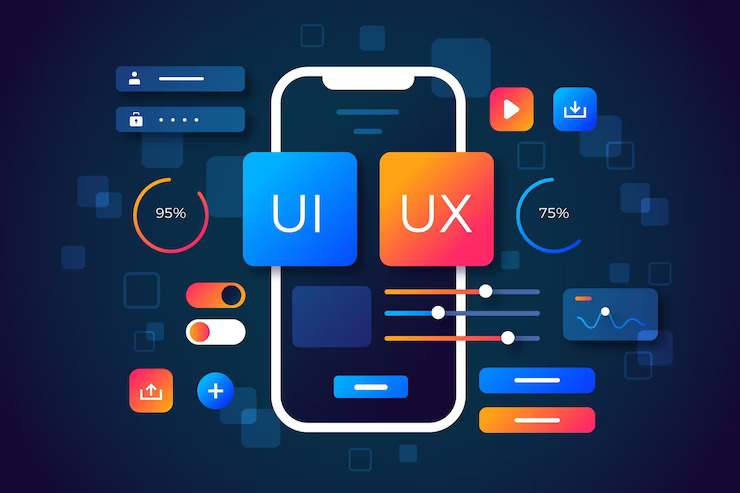BLOG
Smart Hotel Technologies: 9 Technologies to Smart up Your Hotel
Smart Hotel Technologies: 9 Technologies to Smart up Your Hotel
So what are smart hotel technologies?
Imagine you enter your hotel room, and the lights automatically turn on, the temperature is set to your preferred level, and your favourite music playing in the background.
As you settle in, you use your voice to order room service, and the food arrives at your door just minutes later, brought by a delivery robot that looks like an R2D2 (Star Wars).
It may sound like a scene from a futuristic sci-fi movie, but it is the reality and a sign of a smart hotel.
Today people are looking for more than a comfortable stay and a pleasant experience when they travel.
This is where smart hotel technologies come in.
In this blog, we will dive into the world of intelligent hotel technologies and explore the latest trends and advancements.

List of Some Smart Hotel Technologies:
1. Smart Locks
Guests can use their smartphones to unlock their room door using Bluetooth or NFC technology, enhancing convenience and security. Smart locks can also generate insights into guest behaviour by tracking room access, making them an essential tool for hotel security.
2. Internet of Things (IoT)
The Internet of Things can enable hotels to create a more personalized and responsive environment by integrating various devices and sensors.
For example, IoT can allow guests to control room settings through their mobile devices, provide customized recommendations for local activities or restaurants, or even offer a personalized fitness regimen based on individual preferences.
3. Voice Assistants
Voice assistants, such as Amazon’s Alexa or Google Assistant, provide guests with hands-free access to hotel services, from ordering room service to requesting housekeeping or valet services. This feature enables guests to experience more convenience and personalization during their stay.
4. Mobile Check-in
Mobile check-in enables guests to complete the check-in process using their mobile devices, allowing them to skip the front desk and head directly to their room. This feature saves guests time and reduces the pressure of long queues during peak travel periods.
5. Data Analytics
Hotels leverage data analytics to gain insights into guest behaviour and preferences, enabling them to personalize guest engagement and optimize hotel operations. This information can be used to create targeted marketing campaigns, adjust room rates, or improve guest services.

6. Biometrics
Biometrics links guests’ I.D. and credit/debit card info with individual biometrics data like photos or fingerprints. It helps hotels easily identify their guests before they arrive and apply the same profile data throughout their stay.
Biometrics technology makes the payment process simplified.
The Biometrics ID process frees up staff so they can spend more time and resources on important activities like serving the guests.
With biometrics, matching a face with an ID to generate a QR code is easier. Guests can present their QR code during check-in and throughout the stay.
Over 500 hotels around the globe including Hilton, Radisson, Wyndham, Kempinski, IHG, and Accor are using this technology.
7. Tech to reduce food wastage
According to World Wildlife Fund, the hospitality industry is responsible for approximately 1.6 billion metric tons of food waste every year.
Iberostar Group, a Spanish hospitality company, has announced to implementation of AI to become zero waste by 2025.
Iberostar has installed technology based on Winnow AI in its hotels.
It is already saving 618,000 meals per year and 1,065 tons of CO2e per year.
8. Chatbots
Chatbots, powered by artificial intelligence, can answer queries, and help customers make reservations, providing a quick and efficient service.
9. Virtual Reality/ Augmented Reality
Virtual Reality can allow guests to preview their room or amenities before booking, providing an immersive and engaging experience.
Augmented Reality can enhance the guest experience by providing interactive and engaging experiences.
Guests can use AR to explore their surroundings, learn about the local culture, or even order room service.
As the hospitality industry continues to embrace smart technologies, the possibilities for creating personalized and seamless guest experiences are endless.
Advantages of Smart Hotel Technologies
Here are some of the advantages of smart hotel technologies:
Convenient
The efficiency of a hotel is measured by how fast and how well it serves its guests.
Smart hotel technologies like self-check-in and check-out enable guests to complete the registration and check-out process with their phones in no time.
Moreover, it helps your employees save time and resources by simplifying the hotel process.

@Envato Elements
Smart technologies make your hotel more sustainable
Smart technologies help your hotel reduce its carbon footprint.
Thermostats and smart energy management systems help reduce the energy consumption of your hotel.
High-tech electronic items like air conditioner, lights, tv, music system, etc, operate according to your guest’s convenience and saves energy as well
Smart hotel technologies help in fast decision-making
Smart technologies include data management platforms that provide information on all aspects of your hotel business like bookings, services, inventory, supply chain, maintenance, finance, food, housekeeping etc.
You can use it to access your hotel performance, improve your operation and take key strategic decisions based on real-time data.
Smart hotel technologies = Enhanced customer service
Guests are now looking for memorable vacations, and smart hotel technologies can enhance those experiences.
Smart room technologies can enable your customers to request room service with voice commands, instead of calling the hotel staff.
Smart hotel technologies give you a competitive edge!
Providing a unique and personalized experience is essential to stand out from the crowd.
Smart technologies help you differentiate from your competition, leading to increased guest loyalty and repeat business.
Conclusion
The future of smart hotels is exciting, promising to deliver even more personalized and responsive environments. However, hotels must also address the challenges of security, integration, and guest privacy concerns to ensure that their smart technologies remain an asset to their business.
Related Topics
Trending Topics
Want to build Super app for your business?



